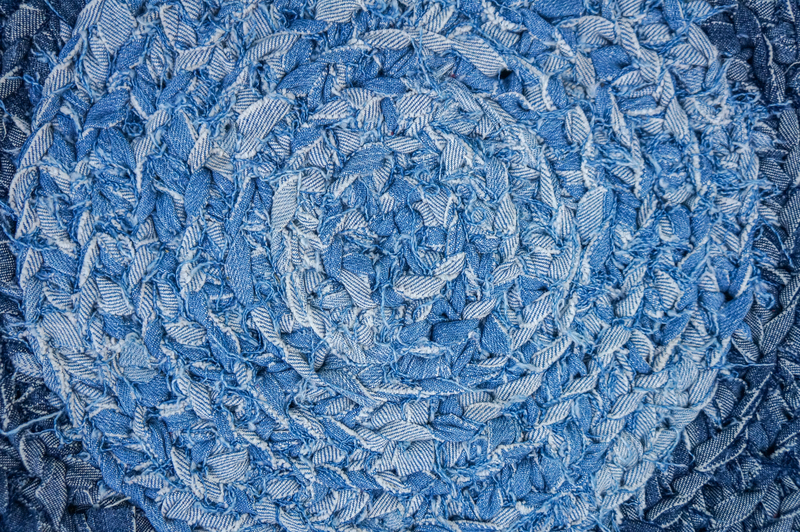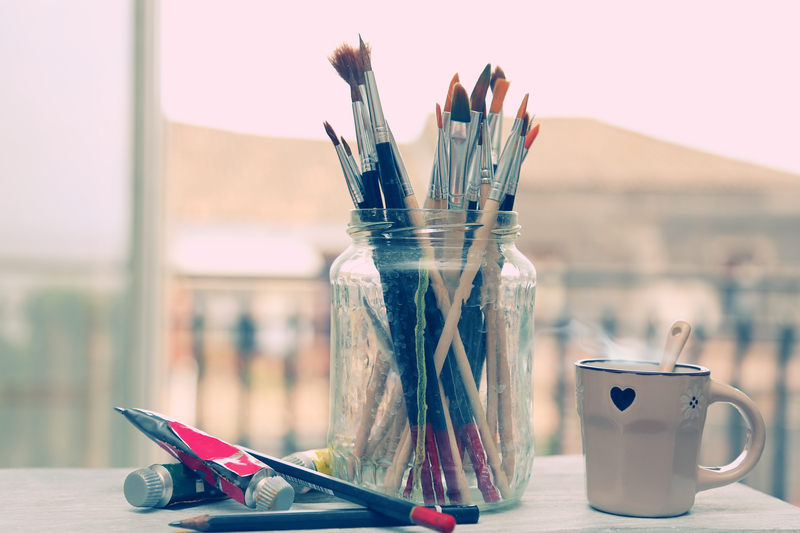Creating Peace: The Power of Decluttering and Minimalism
In today's fast-paced society, where distractions are everywhere and consumerism runs rampant, finding tranquility can be deeply challenging. Many individuals are searching for ways to build an environment that breeds calm and restores mental balance. The journey towards this inner peace often begins with one core principle: decluttering and minimalism.

What is Decluttering and Minimalism?
Decluttering refers to the process of removing unnecessary items from your space, simplifying your surroundings to create a more organized, serene environment. It's not only about tidying up--decluttering enables you to make room for what truly matters in your life.
Minimalism, meanwhile, is a lifestyle choice that encompasses decluttering but goes a step further. It is about living intentionally, choosing to surround yourself only with the items, relationships, and activities that bring real value and joy. Minimalism involves adopting a mindset that values experiences over possessions and quality over quantity.
The Connection Between Decluttering, Minimalism, and Peace
At its core, the power of decluttering and minimalist living lies in their potential to foster a peaceful atmosphere--inside and out. Removing excess from your life can:
- Reduce stress and anxiety.
- Improve focus and mental clarity.
- Enhance overall well-being.
- Save time and energy on cleaning and organizing.
- Encourage mindful consumption of resources.
Why is Decluttering Important for Peace of Mind?
Research has consistently shown that a cluttered environment can negatively impact your mental health. Physical mess increases cortisol levels, making it harder to relax and focus. Excess possessions not only clutter your living space but also your mind, creating feelings of overwhelm, confusion, and restlessness.
Decluttering facilitates mental clarity. Every item in your home or office is a piece of information your brain has to process--even on the subconscious level. By limiting your belongings, you free mental space, unlocking a sense of calm and increased productivity.
Main Benefits of Minimalism and Decluttering
- Reduces decision fatigue: Fewer possessions mean fewer choices to make throughout the day.
- Facilitates relaxation: Clean spaces signal to your brain that it's time to unwind.
- Improves relationships: A peaceful environment creates a welcoming atmosphere for friends and family.
- Saves money: You spend less when you're intentional about what you buy.
- Protects the environment: Mindful consumption helps reduce waste and pollution.
Step-by-Step Guide to Decluttering Your Space
1. Start Small
Begin with a single drawer or shelf. Tackling smaller areas helps you make noticeable progress without feeling overwhelmed. As you build momentum, gradually work your way through each section of your home or office.
2. Define Your Why
Clarify your motivation for embracing minimalism. Is it to create a more harmonious environment, save money, or reduce stress? Write down your reasons, and keep them visible for ongoing encouragement.
3. Categorize Possessions
- Keep: Items that are useful, meaningful, or bring you joy.
- Donate or Sell: Items that are in good condition but no longer serve you.
- Recycle or Discard: Broken or obsolete items.
4. Adopt the "One-In, One-Out" Rule
For every new item you bring in, let go of an existing one. This rule helps you maintain your minimalist space and prevents clutter from accumulating again.
5. Create a Maintenance Routine
Dedicate a few minutes each day to tidying up. Regular upkeep ensures that clutter doesn't sneak back in and that your peaceful environment is preserved.
Minimalism for the Mind: Decluttering Your Mental Space
Minimalism isn't just about the physical realm. Our minds can become just as cluttered as our homes. Consider these tips for mental minimalism:
- Limit media consumption. Filter what information you allow in--follow only relevant news, unsubscribe from emails, and reduce time on social media.
- Prioritize activities that align with your values. Say "no" to unnecessary commitments.
- Practice mindfulness and meditation. These practices help clear your thoughts and foster inner peace.
- Journaling. Writing down your thoughts can help you process emotions and clarify your goals.
Combining decluttering your physical environment and cultivating a minimalist mindset can profoundly impact your sense of peace and contentment.
The Psychological Impact of Decluttering and Minimalist Living
When you declutter and embrace minimalism, the effects ripple into every part of your life. People who adopt a minimalist approach often report:
- Less anxiety about their to-do list and responsibilities.
- Greater focus on meaningful relationships and activities.
- Improved sleep quality due to a more restful environment.
- Increased gratitude for what they have, rather than striving for more.
- More free time for hobbies, travel, or self-care.
Scientific Evidence Supporting Minimalist Lifestyles
A study conducted by the Princeton University Neuroscience Institute found that clutter competes for your attention, resulting in decreased performance and increased stress. Similarly, research from UCLA's Center for Everyday Lives and Families observed that the more possessions people had, the more stress hormones they produced.
These findings underscore the power of decluttering for peace of mind and provide compelling reasons for minimalism as a path toward better health and happiness.
Decluttering, Minimalism, and Mindful Consumption
One of the cornerstones of minimalist living is mindful consumption. We live in a world where advertisements constantly push us to buy more. However, choosing minimalism means resisting impulse purchases and focusing on essentials. Mindful consumption can help you:
- Conserve financial resources.
- Reduce waste and environmental impact.
- Develop a deeper appreciation for what you own.
- Support ethical, sustainable brands.
Every purchase you make should be intentional. Ask yourself: Does this item enrich my life? Will it serve a purpose, or will it add to my clutter?
Practical Strategies for Mindful Shopping
- Wait 24 hours before buying non-essential items.
- Buy quality over quantity--choose items meant to last.
- Keep a wish list and revisit it after some time.
- Seek experiences rather than physical objects as gifts.
Minimalism in Everyday Life: From Home to Digital Spaces
Decluttering Your Home
Decluttering should extend to every area of your home:
- Living Room: Keep surfaces clear, limit decorative items, and choose multi-purpose furniture.
- Bedroom: Store only essentials--clean out closets, drawers, and nightstands for true tranquility.
- Kitchen: Keep countertops tidy, discard unused gadgets, and organize your pantry for easier meal prep.
- Bathroom: Dispose of expired products and only keep daily essentials within reach.
Approaching Digital Minimalism
Clutter doesn't just exist in the physical world--it's also present in our digital lives. Digital minimalism is increasingly important for achieving peace of mind:
- Clear your inbox regularly; unsubscribe from unwanted newsletters.
- Organize digital files and folders for easy access.
- Regularly clean up your phone--remove unused apps, old photos, and notifications.
- Set boundaries on screen time to focus on real-world connections.
By practicing digital decluttering, you reduce distractions and create a healthier relationship with technology.
Common Challenges and How to Overcome Them
While the benefits of minimalism and decluttering are immense, the process can feel intimidating. Here's how to address common hurdles:
1. Emotional Attachment to Possessions
It's normal to feel connected to certain objects. Take photos of mementos before letting them go, or limit sentimental items to a specific box or shelf.
2. Fear of Needing Items in the Future
If you haven't used something in over a year, chances are you won't miss it. Trust your judgment, and remind yourself that you can always borrow or repurchase truly essential items.
3. Overwhelm from Where to Begin
Break the process into manageable steps. Focus on one area at a time, and set specific, achievable goals for each session.
4. Resistance from Family Members or Roommates
Lead by example, and respect communal spaces. Share the benefits you experience and invite others to join the journey--but never force them to participate.

The Ongoing Journey: Making Minimalism a Lifestyle
Embracing minimalism and decluttering isn't a one-time project--it's an ongoing process. Life changes, and with it, your needs and preferences may evolve. Schedule regular check-ins with yourself to ensure your environment continues to reflect your values and support your goals.
Remember, minimalism looks different for everyone. Your version of a peaceful, decluttered life is uniquely yours--whether you live in a studio apartment or a house, whether you own ten books or a hundred. The key is intentional living.
Conclusion: The Transformative Power of Decluttering and Minimalism
Creating peace in your life is possible--sometimes, all it takes is a conscious decision to let go of the unnecessary. Decluttering and minimalism pave the way towards a more serene, meaningful, and balanced existence. By embracing these principles, you create not only a more beautiful home but a tranquil mind, deeper relationships, and a more sustainable world.
Take the first step today--start small, stay mindful, and experience the powerful peace that comes with living more with less.